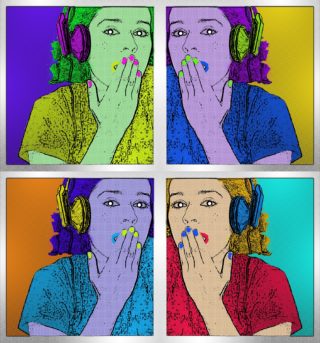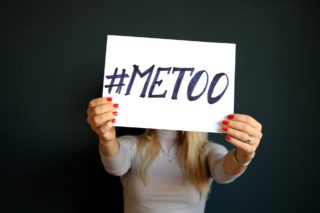
I’m not going to even suggest these blog posts write themselves. Because they don’t. But many are in my “sweet spot” – topics or areas in which I feel reasonably well qualified, or where I’ve done enough research to be articulate.
But today, I may be punching well above my weight. Or my gender.
And you may conclude after reading it that not only am I out of my league, but as an older white guy who’s worked in and around radio for well more than four decades, I may indeed be a part of the problem.
If that’s the outcome, I’m good with that. Much of this blog’s mission over the past 15+ years is to discuss issues impacting radio – and its assorted communities – that aren’t always layups, much less easy to discuss.
One of the outgrowths these past couple years – and it transcends the pandemic – is that many controversies that have typically bubbled below the surface are now in our face – no matter who we are and what our experiences have been.
 Perhaps it started with #MeToo, first in the showbiz realm, and soon all aspects of media, technology, sports, the workplace, and in our day-to-day transactions with other people.
Perhaps it started with #MeToo, first in the showbiz realm, and soon all aspects of media, technology, sports, the workplace, and in our day-to-day transactions with other people.
And it gained momentum with George Floyd, and the still open wounds of systemic racism that have plagued this country for centuries.
Emotions are raw heading into six long months of COVID, and an election that promises more noise, bitterness, and division. All the while, there are new constituencies aching to be heard.
In recent days weeks, and months, we’re hearing from all sorts of folks – educators, athletes, and yes, even postal carriers – all of whom are feeling the stress and the disorientation of these times.
In radio, we are no exception. Public radio operations are now experiencing their own unique trauma. While these stations and networks may be more mission focused and “enlightened” than the average Sports Radio or Classic Hits station, their staffs have perhaps higher expectations. And many are challenging their managers and executives to do better.
In Country radio here in the U.S., the discussion about female artists and their (lack of) airplay has been a topic for many years, perhaps reaching a new crescendo earlier this year at CRS where at least two panels addressed this controversial topic.
Last February, a story in MusicRow by Jessica Nicholson pointedly asked the musical question:
“CRS: Is 2020 the Year of the Female Artist?”
You’d have to check in with Country listeners, programmers, artists, and execs to get an idea whether the format and its programmers have lived up to this lofty goal so far this year.
But recent developments in the Rock Radio community suggest these conversations will not be isolated to just Country.
It is interesting how the planets have lined up in 2020 – across the spectrum of music and life. And in the world of Rock, there are touchstones to be aware of, and discussions to be had.
As I trend watch, it’s been interesting how the planets are lining up.
First, it was the Go-Go’s, and a new documentary on Showtime. While there were lots of “girl groups” like the Ronettes and the Supremes back in the 60’s, the Go-Go’s were one of rock’s most successful all-female bands. When we think back to the New Wave movement, there’s a special place for the Go-Go’s.
In our documentary you get to see how we pushed boundaries to become the most successful all-female rock band of all time!!  #WomenWhoRock #WeveGotSomethingToSay pic.twitter.com/vhIztKfOl3
#WomenWhoRock #WeveGotSomethingToSay pic.twitter.com/vhIztKfOl3
— The Go-Go’s (@officialgogos) August 9, 2020
It was not an easy road to success for the band, littered with rejections, until I.R.S. Records finally signed them. In 1981, they released “Beauty and the Beat” featuring their big hit “Our Lips Are Sealed.” Lead singer Belinda Carlisle summed up the band’s journey this way:
“We thought anything was possible, including succeeding in an industry run by men.”
That quote resonates today. And it hit a flash point last week when Evanescence vocalist Amy Lee conducted a radio interview, and then followed it up with an impassioned Facebook post. It is worth reading all the way through, and sets the table powerfully.
A story in Altpress by Rachel Dowd – “Amy Lee Addresses Double Standards For Women In Rock Music” – frames this issue well.
As someone who personally programmed a Rock station back in the late 70’s/early 80’s zone (they were called “AOR” back then), our playlist included lots of Fleetwood Mac, Heart, Grace Slick, and the other female icons of the format and the genre. During my watch, artists like Pat Benatar, John Jett, Annie Lennox, and Stevie Nicks (as a solo artist) easily made their way onto our current playlist. We welcomed them, and like every song a programmer adds, you hope the audience shares your enthusiasm.
That said, I was taught not to play two female artists/singer back to back – and other “isms” about radio that now sound downright prehistoric. And while I don’t remember ever thinking about whether a female rocker would sound good or bad on the station – I have long believed that men are often their biggest fans – the institutional bias, and the second-class citizenry Amy Lee talks about isn’t something she’s made up.
It is real.
All of that is not to suggest there’s not just systemic sexism in Rock Radio. That’s because there is “gatekeeping” happening at all levels. It starts with the labels and the A&R “guys” – the ears that recommend new bands to sign. And from there, it’s the recording process, the release strategy, and the promotional plan.
While there may be many different ways to measure what is popular today via streaming and other distribution outlets, back then, it was pretty much a function of what the labels brought your station.
Back then, most Rock radio stations were (and still are) programmed by men. And did any of us push the labels to do a better job searching and discovering women rockers? Nope, not on my watch.
And so the systemic bias Amy Lee talks about – that “it IS harder to make it onto the cover or the radio” – needs to be heard, considered, and acted upon.
It is real.
When I interviewed Donna Halper a couple months ago about Rush and her role in discovering the band for WMMS in Cleveland back in the 70’s, our conversation wandered back to the “good old days,” when men were mostly the PDs, while women (if they even opted to stay in programming) were relegated to being Music Directors.
So, imagine my surprise. @PatriotLedger, honoring 100 years of women voting, named the Women of the Century, & then the Women of the South Shore (the part of MA that includes Quincy). One of the women they chose… was me. https://t.co/qOea4rxntb pic.twitter.com/lVLmrK35v5
— Donna Halper (@DevorahLeah) August 15, 2020
Donna and many other women who did much of the heavy lifting in Rock Radio always worked for male programmers.
It is real.
The story – or at least this chapter – has a happy ending. In Amy Lee’s Facebook post, she wraps it up with a shout-out to Taylor Momsen and The Pretty Reckless who recently saw their hit single, “Death By Rock and Roll” hit #1 on the Active Rock chart. We blogged about Taylor a couple weeks back.
KLOS’s Keith Cunningham recently sent me a cover version of Queen’s “We Will Rock You.” But it’s epic in that three of Rock’s most talented vocalists of today, Momsen, Lzzy Hale (Halestorm), and Maria Brink (In This Moment) came together to record it – and make their statement. As Keith noted, “They all have such amazing rock voices.”
The message in this song and this collaboration is as loud and clear as Amy Lee’s Facebook post, the Go-Go’s documentary, and the other voices we’re hearing from.
There’s something happening here. And it’s happening at this amazing junction in time.
It is real.
On the radio side of the equation, this moment is an opportunity for all of us – yes, especially us men who have dominated Rock Radio since its beginnings – to step back and see the industry through a different lens.
More female PDs of Rock stations would be a great start. But the foundation is about encouraging young women who aspire to a career in broadcast radio believing there’s a place for them running a radio station’s programming department – that it’s a career path worthy of pursuing.
Oddly enough, radio broadcasting has some “powerful” women running entire companies, as well as strong female representation in sales, sales management, digital, marketing, and other departments.
But as PDs, not so much.
When we think about how our stations sound – how radio sounds – the person making the calls about what goes on the air – and what doesn’t – has a lot of power in his – or her – hands.
It is real.
Read more: jacobsmedia.com
